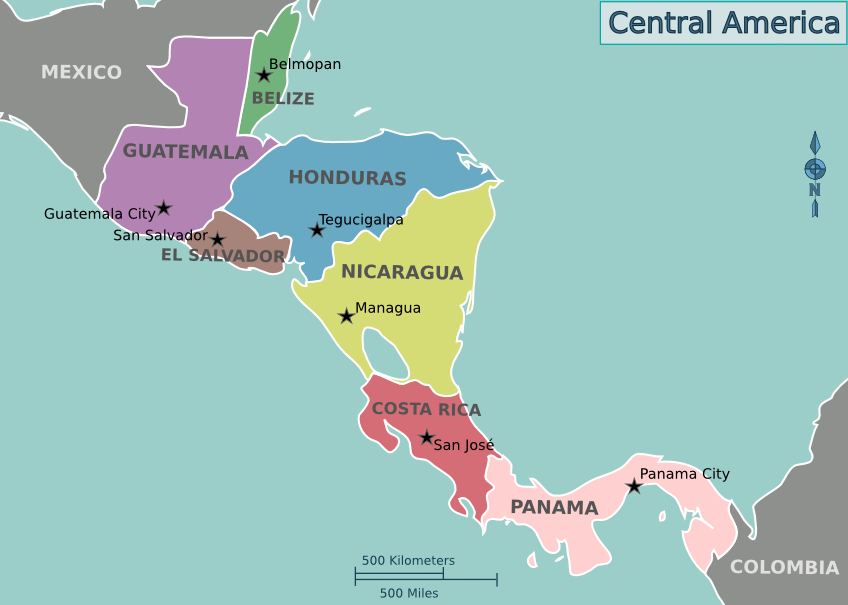When you understand the governments lack of control over gangs and crime in the Honduras, Guatemala and El Salvador you will be able to better understand why people are fleeing their homelands for the United States. It is no longer just about better opportunities, now it is about personal safety for ones self and ones family. We need to be focusing our efforts on our borders and on efforts to help our neighbors, not taking on battles in the middle east trying to solve problems that have existed there for centuries.
A crisis of enormous economic and humanitarian impact is unfolding in Central America, and it’s hard to find much mention of it in our national media, other than constant references to a result of the crisis: tens of thousands of human beings, many of them unaccompanied children, trying desperately to enter our country illegally. They are attempting to escape the poverty, gang violence and drug wars raging in their home countries, and they are flooding our border and overwhelming our immigration authorities. More than 50,000 children have already arrived, most of them now detained in facilities along the border, and every indication is that this is simply the beginning.
The White House on Monday indicated that most of the arrivals will be deported home, without much discussion of the homes to which they’ll return. With the growing recognition of the importance of Hispanic influence in the United States, one might expect more attention would be paid to what’s happening in the countries from which this tidal wave is coming. But some things are slow to change. Latin America never seems to capture much of our national attention, unless war breaks out or a World Cup arrives in Brazil.
Central America was a hot political issue in the 1980s, with civil wars and human rights concerns in El Salvador, Guatemala, Honduras and Nicaragua. President Ronald Reagan gave nationally televised speeches and appointed a presidential commission, chaired by former Secretary of State Henry Kissinger, to address the issues we faced. When those immediate challenges faded, however, so did our collective focus on events in what is sometimes called our “back yard” but really is our “front yard.”
When George W. Bush, the Spanish-speaking governor of Texas, was elected president, I assumed U.S. foreign policy would focus intensely to our south. But 9/11 happened, and ever since our attention has been mostly on the Middle East, with occasional thought of a “re-set” with Russia or a “pivot to Asia.” Central America, arguably of equal or greater import to our immediate interests given the threats posed by drugs and the deluge of illegal immigration, apparently remains on the back burner for the Obama administration, as it did for his predecessor. We need to move it to the front of the stove.
Almost 30 years ago, as a member of the Kissinger Commission, I joined with my colleagues in proposing a major U.S. program to promote economic development, education and job creation in Central America. Republicans like New York Rep. Jack Kemp and Ambassador Jeane Kirkpatrick joined Democrats like Washington Sen. Henry M. “Scoop” Jackson and AFL-CIO President Lane Kirkland to advocate spending $450 million to jump start the effort.
We felt that this could lessen the causes of the existing civil unrest and offer opportunities to young people so they wouldn’t feel their only hope for a brighter future was to hop a train heading north. However, for all the usual reasons, nothing came of it, and one can only speculate on how different things might be today if that kind of investment had been made over these decades educating young Central Americans and stimulating economic opportunity. I still believe it would have been much cheaper than our military expenditures and the costs of dealing with the massive drug and immigration challenges we now confront. And we might not be witnessing the unbelievable tragedy of children dying in our southwestern desert.
It’s past time for another presidential initiative to consider ways to improve conditions in Central America, address the challenges of drugs and migration and work with all responsible actors in the region. In the spirit of President John Kennedy’s Alliance for Progress, this should not be a purely North American venture. Frankly, given our recent perceived indifference, that wouldn’t be taken seriously by many of our neighbors in any event. Far better for President Obama to ask Former Costa Rican President Oscar Arias to convene a White House sponsored summit to begin this process. The Nobel Prize winner for his crucial role in bringing peace to Central America is perhaps the most respected individual in the region, and he has a proven record of actually achieving difficult goals. Many of us who care deeply about Latin America and its relations with the United States would be eager to support such an effort.
There are many crises in the world, but none of them hits closer to home than this one. We continue to ignore it at our national peril.
Michael D. Barnes is a former chair of the Western Hemisphere Subcommittee of the House Committee on Foreign Affairs. He is a Senior Fellow at the Center for International Policy in Washington. His email is Mbarnes@ciponline.org.
